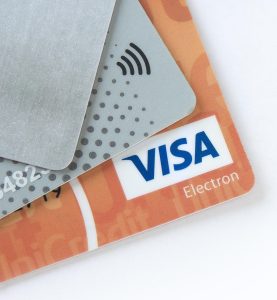12.7 Borrowing

Borrowing means getting money from someone else (like a bank or credit card company) to cover expenses you can not pay for right away. You usually have to pay this money back later, often with interest.
In the modern financial system, individuals have access to a variety of borrowing options to help manage expenses, make purchases, and invest in their future. Two of the most common financial tools used for borrowing are loans and credit cards.
A loan is a specific amount of money you borrow from a financial institution and then pay back in regular chunks over time (plus interest).
Common types of loans include:
- Mortgage: A loan to buy a house.
- Student Loan: A loan for paying tuition or other school costs.
- Personal Loan: A loan you can use for different things, like consolidating debt or covering emergencies.
A credit card lets you borrow up to a set limit whenever you buy something. You can repay the borrowed amount each month, and any remaining balance will collect interest. It’s called revolving credit because you can use it, pay it off, and use it again.
Credit cardholders are required to make at least the minimum payment each month. Any unpaid balance typically accrues interest, which can make purchases more expensive over time.
Advantages of Using a Credit Card
#1. Convenience
Credit cards allow for quick and easy transactions, both in-person and online, without the need to carry cash.
#2. Credit Building
Responsible credit card use can help establish and improve a credit score, which is beneficial for future financial opportunities, such as applying for a mortgage or car loan.
#3. Rewards and Incentives
Many credit cards offer cashback, travel rewards, or points that can be redeemed for discounts, flights, or merchandise.
#4. Emergency Financial Cushion
A credit card can serve as a financial backup in case of unexpected expenses.
#5. Fraud Protection
The ease of swiping a credit card can lead to unnecessary or excessive spending.
Disadvantages of Using a Credit Card
#1. High-Interest Rates (often exceeding 20%!)
Carrying a balance from month to month can result in significant interest charges, increasing overall debt.
#2. Debt Accumulation
Misuse or overspending can lead to financial difficulties, making it challenging to pay off outstanding balances.
#3. Additional Fees
Late payments, annual fees, cash advances, and foreign transaction fees can add unexpected costs.
#4. Potential Credit Score Damage
Late payments, maxing out credit limits, or opening multiple credit accounts can negatively impact a credit score.
#5. Encourages Impulse Spending
The ease of swiping a credit card can lead to unnecessary or excessive spending.
How to Use a Credit Card Responsibly
Proper credit card management is essential for maintaining financial health. The following strategies can help individuals use credit cards effectively and avoid common pitfalls:
- Pay the balance in full: To avoid high interest charges, it is best to pay off the full statement balance each month.
- Make payments on time: Timely payments prevent late fees and help maintain a strong credit score.
- Keep credit utilization low: Using less than 30% of the total credit limit demonstrates responsible credit usage and positively affects credit scores.
- Monitor statements regularly: Reviewing monthly statements can help detect errors or fraudulent transactions early.
- Use credit for necessary purchases: Credit cards should be used for planned and essential expenses rather than impulse spending.

